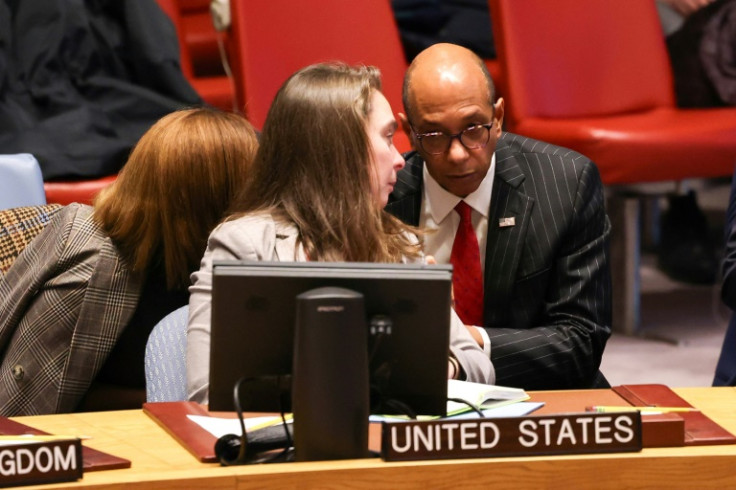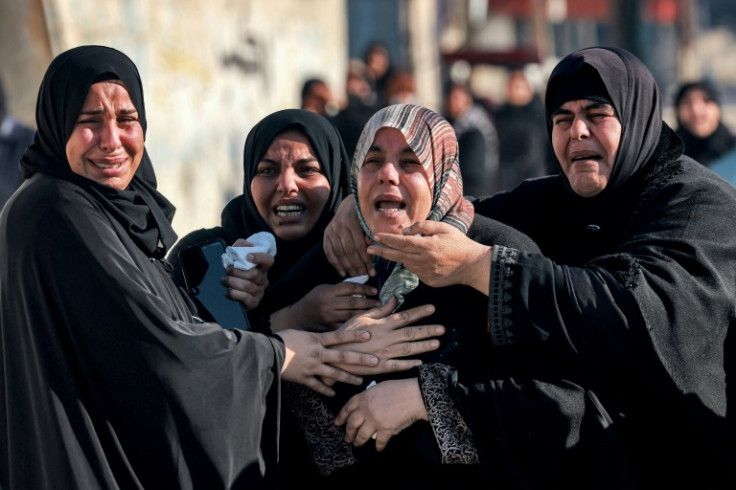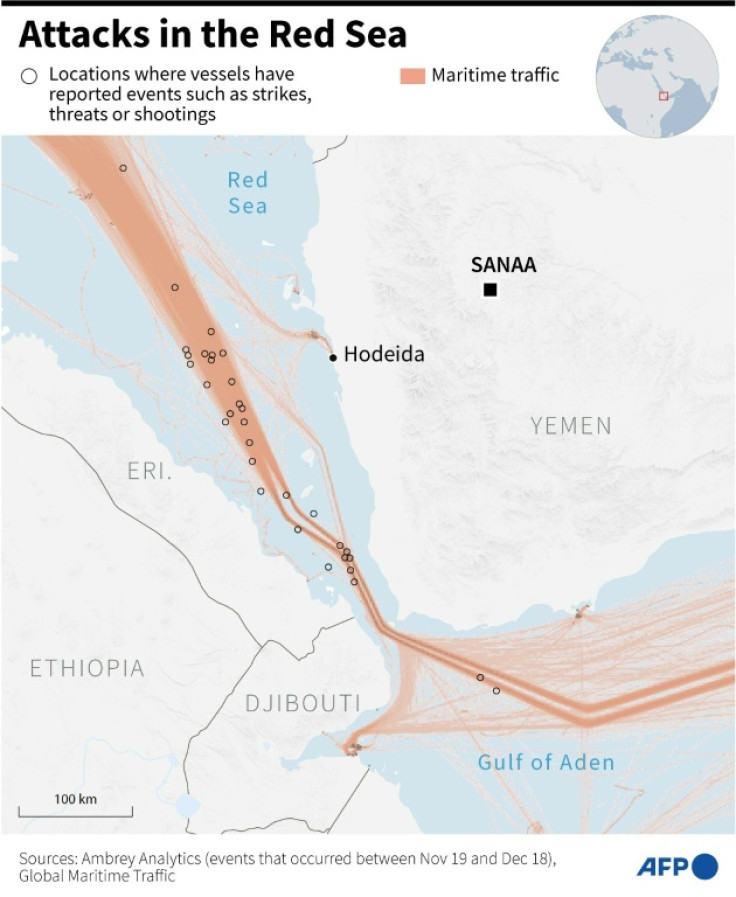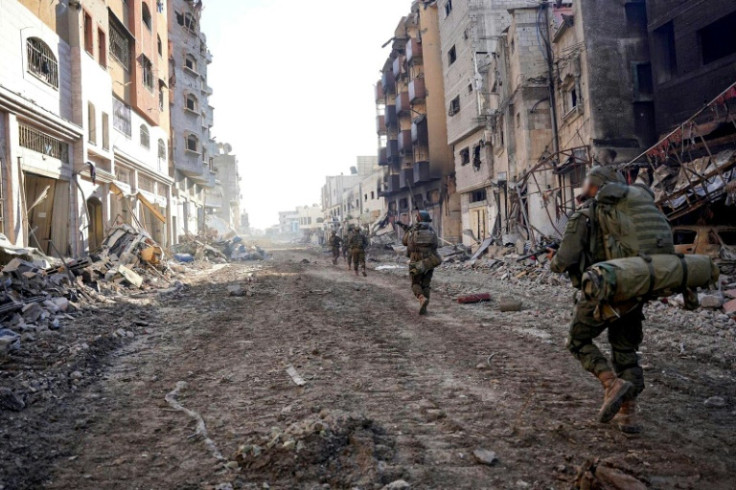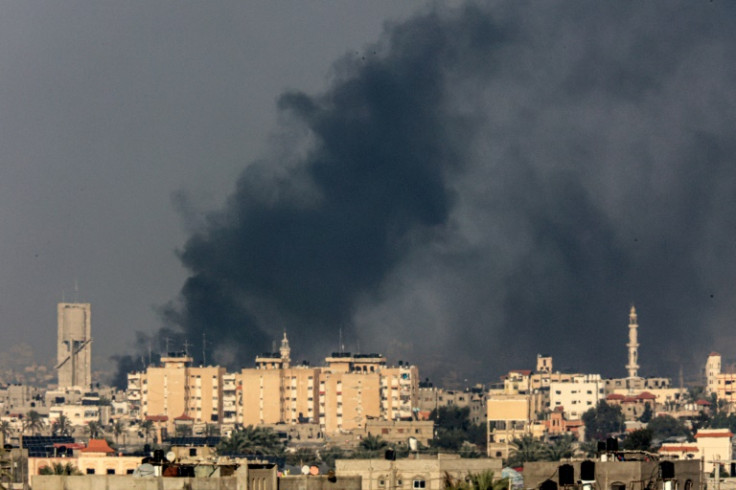
The head of Hamas was due in Egypt on Wednesday for talks on a fresh ceasefire in Gaza, after Israel said it was willing to agree to another pause in exchange for more hostages.
International pressure is mounting for a new truce that could ramp up aid to the besieged Palestinian territory, with the United Nations due to vote Wednesday on calling for a ceasefire.
Qatar-based Hamas chief Ismail Haniyeh was expected to lead a "high-level" delegation to Egypt for talks with the country's spy chief and others on "stopping the aggression and the war to prepare an agreement for the release of prisoners", a source close to the group told AFP.
Israel's leaders are facing growing calls to secure the release of 129 hostages they say are being held in Gaza and, on Tuesday, signalled a willingness to return to the negotiating table with Hamas.
Israeli President Issac Herzog said his country was "ready for another humanitarian pause and additional humanitarian aid in order to enable the release of hostages".
Israeli Prime Minister Benjamin Netanyahu said he had recently sent his spy chief on two trips to Europe in an effort to "free our hostages".
US news site Axios reported Monday that David Barnea, head of the Israeli intelligence agency Mossad, met with Qatari Prime Minister Sheikh Mohammed bin Abdulrahman Al Thani and CIA director Bill Burns in Europe to discuss a potential new deal to free hostages.
Axios also reported Tuesday that Israel had offered to pause the fighting in Gaza for at least one week in exchange for more than three dozen hostages held by Hamas.
The war began when Hamas militants burst out of Gaza on October 7, killing around 1,140 people in Israel, mostly civilians, and abducting about 250, according to the latest Israeli figures.
Vowing to destroy Hamas, Israel began a campaign of bombardment, alongside a ground invasion, that Hamas-run Gaza's health ministry says has killed 19,667 people, mostly women and children.
Qatar, backed by Egypt and the United States, helped broker a week-long truce and hostage-prisoner swap in November in which 80 Israeli hostages were freed in exchange for 240 Palestinian prisoners.
The UN Security Council was set to vote Wednesday on a resolution calling for a pause in the conflict, three diplomatic sources told AFP, after two previous votes were delayed as members wrangled over wording.
The latest version of the text calls for the "suspension" of hostilities, the sources said.
The US vetoed a previous ceasefire resolution in the council, sparking condemnation by Palestinian and humanitarian groups, which urged more action to help civilians caught in the conflict.
The UN estimates 1.9 million of Gaza's 2.4 million residents are displaced and concerns are growing about the limited ability of aid groups to help.
"Amid displacement at an unimaginable scale and active hostilities, the humanitarian response system is on the brink," said Tor Wennesland, the UN's special coordinator for the Middle East peace process.
UN children's agency spokesman James Elder said he was "furious that those with power shrug at the humanitarian nightmares unleashed on a million children".
One of the last remaining hospitals in northern Gaza, Al-Ahli, stopped operating after it was stormed and "put out of action" by Israeli forces, its director Fadel Naim told AFP.
Homes have been destroyed, forcing many into overcrowded shelters as they struggle to find cooking fuel, food, water and medical care.
With power and communication often cut, Gazans are returning to time-worn traditions including battery-powered radio sets to get news of the war.
"Here in Gaza, we're moving backwards," said Salah Zorob, 37, outside his tent. "They're going to take us back to the Stone Age."
Israeli military spokesman Daniel Hagari said Tuesday that troops were expanding operations in southern Gaza's Khan Yunis area.
"We must dismantle Hamas, and it will take as long as needed," he said.
The army says 132 troops have been killed in Gaza since its ground invasion began in late October.
Hundreds of Palestinians have been detained in military operations across the territory, and on Tuesday, the army said it was investigating "the deaths of terrorists in military detention centres" without giving details.
The US has urged Israel to protect civilians in Gaza, a call echoed Tuesday by British Foreign Secretary David Cameron, who urged Israel to take a "much more surgical, clinical and targeted approach" in dealing with Hamas.
After talks with his Italian counterpart in Rome, Cameron said Britain was asking Israel to "recognise that they have to minimise civilian casualties, they have to obey international humanitarian law at all times".
The Gaza war has sparked fears of regional escalation and seen Israel trade deadly cross-border fire with Iran-backed Hezbollah militants in southern Lebanon.
The Israeli army said it had targeted Hezbollah positions on Tuesday after intercepting fire near the border that wounded two reservists.
Yemen's Huthi rebels, meanwhile, have repeatedly fired missiles and drones towards cargo ships in the Red Sea in what they say is a show of support for Palestinians.
Major shipping firms have diverted their vessels as a result, and the US announced on Monday a new multinational naval task force to protect the waterways, through which 12 percent of global trade transits.
In its current form, the task force includes warships from the United States as well as Britain, Canada, France, Italy, the Netherlands, Norway and other countries.
The US pushed Tuesday to build up the initiative, with Defense Secretary Lloyd Austin telling a virtual meeting with 43 countries, the EU and NATO that the attacks "threaten the free flow of commerce".
